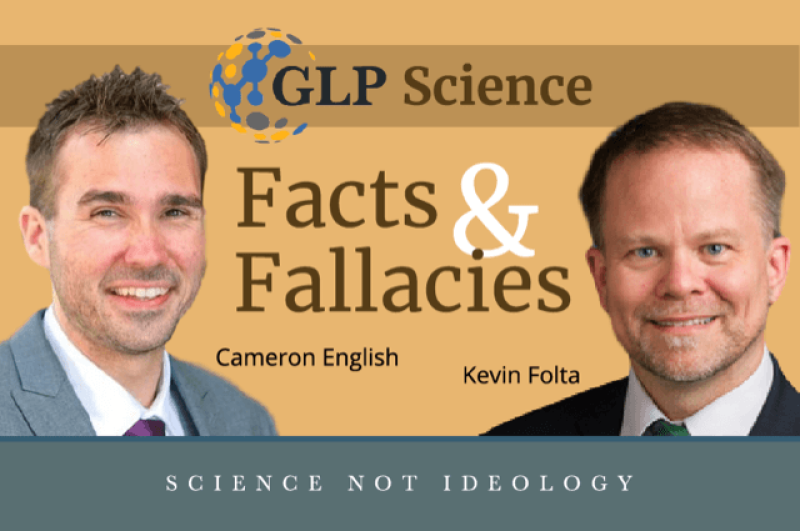Podcast:
Podcast: Play in new window | Download
Subscribe: RSS
Video:
Join geneticist Kevin Folta and GLP contributor Cameron English on episode 210 of Science Facts and Fallacies as they break down these latest news stories:
Despite EWG’s claims about the dangers of pesticides, independent experts and regulators continue to insist that America’s food supply is among the safest in the world. There is simply no evidence to suggest that trace amounts of pesticides on your produce can pose a health risk. Let’s examine just how extensively officials at the EPA, FDA and USDA investigate the chemicals that farmers are allowed to use.
Claims that pesticides pose a severe threat to human health and the environment are a dime a dozen. The problem is, most of these allegations come from people with ideological commitments that force them to oppose pesticide use. Talking to experts, who actually work with these chemistries, offers a much more balanced perspective. When pesticides are misused, they can indeed be very dangerous. When used as intended and with the proper safety protocols in place, pesticides play and important role in producing our abundant food supply.
Ukraine is a major grain producer; Russia is one of the top producers of chemical fertilizer used in agriculture. With the ongoing war disrupting both countries’ exports, Europe has been forced to hit the pause button on its F2F proposal. The decision confirms that the EU simply can’t afford to mandate increases in organic farming and cuts in pesticide use with global food shortages looming. Will these developments finally incentivize the EU to permanently rethink its skepticism of crop biotechnology and agricultural chemicals?
Kevin M. Folta is a professor, keynote speaker and podcast host. Follow Professor Folta on Twitter @kevinfolta
Cameron J. English is the director of bio-sciences at the American Council on Science and Health. Visit his website and follow ACSH on Twitter @ACSHorg































